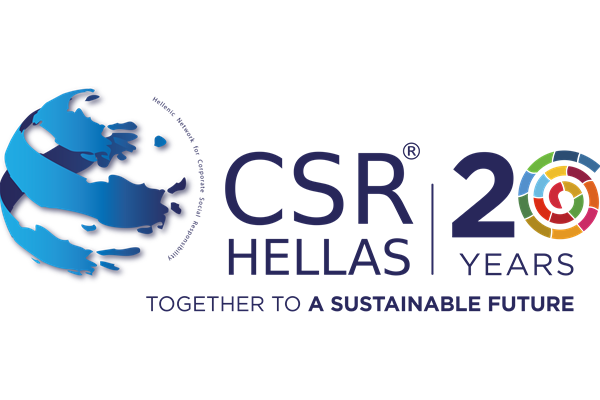EU Policy Updates July
Read below the latest updates in EU regulations. For more information about how these regulations might apply to your company, email Morris Massarutto, Senior Project Manager at mm@csreurope.org
Green Claims Directive stalls amid political tensions and scope disputes in EU
The Polish Presidency of the EU Council decided to cancel the trilogue negotiations on the Green Claims Directive, which were scheduled for 23 June, following an informal notice from the Commission indicating its intention to withdraw the proposal in response to letters from the EPP and ECR groups in the European Parliament.
In a later announcement, the Commission clarified that it would not withdraw the proposal, if microenterprises will be excluded from the scope of the Green Claims Directive.
Negotiations among the institutions were nearing conclusion, with the European Parliament favouring the exclusion of microenterprises. Further progress in the Council is expected to be taken up by the Danish Presidency which took over the rotating EU Presidency on 1 July. Trilogues will be rescheduled if the Council is able to find a consensus, given the fact that Italy has withdrawn its support for the EU Green Claims Directive, within the Council context. Otherwise, the proposal may remain blocked in Council.
Based on the outcome of eventual trialogue negotiations, the Commission will decide if it can still support the text. However, if the EPP group maintains its stance, the European Parliament may struggle to secure a majority for approval. Political tension has already emerged with the leader of the political party S&D stating that they will no longer back the informal coalition of EPP, Renew, and S&D if the Green Claims Directive is not preserved in its current form.
The ENVI Committee Co-Rapporteur is expected to provide an update on the Green Claims proposal to the MEPs in the European Parliament on 3 July.
If you want to know more about the Green Claims Directive how it will affect your Business, join us in the EU SUSTAINABILITY POLICY UPDATE - Green Claims and Empowering Consumers Directives : What Businesses Need to Know — CSR Europe, on October 16, 2025
Update on EU Omnibus proposal.
The Council has formally agreed on its position on the Omnibus proposal. On 23 June 2025, COREPER II approved the text that will form the basis for inter-institutional negotiations with the European Parliament. The Council’s proposal includes the following key changes:
The scope of the CSRD would be narrowed to companies with at least 1,000 employees and a net turnover of €450 million
The CSDDD would apply to companies with 5,000 employees and a turnover of €1.5 billion.
Limiting companies’ obligations to adopting a transition plan rather than its full implementation, with an expectation of reasonable efforts instead of best efforts.
Postponement of the CSDDD transposition deadline by one year, to 26 July 2028.
Shift from an entity‑based to a risk‑based approach, replacing detailed mapping with a general scoping exercise. Tier 1 focus retained with companies needing to go beyond only when objective, verifiable evidence of risk exists
Introduces a review clause related to a possible extension of these obligations beyond the ‘tier 1’.
Companies could rely on data from smaller value‑chain companies (≤ 1,000 employees) according to VSME standards; partners may decline requests for information beyond the VSME
In the European Parliament the first meeting with the shadow rapporteurs in the JURI Committee is scheduled for 15 July 2025. The meeting is expected to be non-public and will focus on identifying possible compromises among political groups ahead of the JURI Committee vote on its finalized position on omnibus on 13 October. Once the JURI Committee adopts its position, it will be submitted to plenary for approval by the end of October.
After the European Parliament finalizes its official position, trialogue negotiations will begin with the aim of reaching a first reading agreement on the proposal by the end of 2025. These negotiations are expected to start by the end of October 2025.
Commission unveils Clean Industrial Deal to align climate goals with industrial competitiveness
On 26 February, the Commission presented its Communication on a Clean Industrial Deal a strategic roadmap that links climate policy with competitiveness to accelerate decarbonisation and lower energy costs across the EU
Building on the Antwerp Declaration and the Clean Transition Dialogues, the Clean Industrial Deal aims to create a business case for EU industries on how sustainability, decarbonisation, and resilience can go hand in hand with competitiveness on the path to a climate-neutral economy by 2050.
The Deal has three key, interlinked objectives:
Firstly, climate neutrality, with ambitions to reduce emissions by 55 % by 2030, 90 % by 2040, and achieve net‑zero by 2050;
Secondly, a circular economy target of 24 % circular material use by 2030; and
Thirdly, industrial leadership, ensuring the regulatory framework supports lead markets for clean technologies and sustainable products while guaranteeing access to affordable energy, critical raw materials, finance, and high‑quality jobs
If you want to know more about the Clean Industrial Deal and how it will affect your Business, join us in the EU Sustainability Policy Update Webinar on the Clean industrial Deal, on July 17, 2025.
A Strong Europe in a Changing World: Denmark’s presidency agenda for the EU Council
From 1 July, Denmark assumed the rotating Presidency of the EU Council, guided by the motto “A strong Europe in a changing world.” Its programme is built on three interlocking pillars: security, competitiveness, and the green transition.
The Danish Presidency’s competitiveness agenda aims to strengthen resilience, secure stable supply chains, improving economic security, reinforce the EU’s global position, and drive growth through research-based innovation. Efforts will focus on decarbonising industry, establishing the right framework conditions to ensure access to essential raw materials, and affordable energy. Key actions include:
Regulatory Simplification with simplified and clearer regulation, reducing administrative burdens on businesses while preserving core policy goals
Discussions on the upcoming evaluation of the procurement directives to shape their future revision
Advance the Clean Industrial Deal and launch negotiations on the Industrial Decarbonisation Accelerator Act
Reducing energy costs and ensuring access to affordable energy to strengthen industry
Creating a strong single market and boost capital access via the Savings and Investment Union.
On the environmental Agenda, Denmark is making the green transition a central priority, aiming for a resilient and competitive Europe. Its objectives include:
Achieving climate neutrality by 2050 setting an EU 2040 climate target to provide clear guidance for climate action, investments, and industrial competitiveness.
Strengthening the circular economy
Reducing environmental consumption footprints and better protecting natural resources.
Encourage sustainable production and consumption
Revising the Sustainable Finance Disclosure Regulation (SFDR)
Enhancing the Carbon Border Adjustment Mechanism (CBAM) to prevent carbon leakage and support Europe’s green competitiveness
EU launches open public consultation for the revision of CBAM
Under the Clean Industrial Deal, the Commission intends to simplify the Carbon Border Adjustment Mechanism (CBAM) and possibly extend its scope to better prevent carbon leakage and address the risk of circumvention. CBAM currently covers cement, iron and steel, aluminium, fertilisers, electricity, and hydrogen, ensuring that imports face the same carbon cost as EU production under the EU Emissions Trading System (EU ETS1). Under the current scope, there is a risk that EU producers of downstream goods may move production abroad to avoid increased carbon costs, and EU buyers may switch to imports from third countries with weaker climate policies, causing carbon leakage. Additional anti-circumvention measures would target practices aiming to avoid the CBAM financial obligation, without due cause or economic justification.
To inform the revision of CBAM, the Commission has launched an Open Public Consultation running from 01 July 2025 to 26 August 2025. Based on the feedback from the consultation, the Commission will present a comprehensive CBAM review report in the second half of 2025, assessing the scope of the CBAM extension to additional EU ETS sectors and downstream products and the inclusion of indirect emissions across all CBAM sectors. A legislative proposal is expected to follow in the first half of 2026.
To learn more about the proposals of the European CSO Network on CBAM and other key EU sustainability regulations, take a look at its latest paper “A view from Practitioners on Better regulation for stronger implementation”
LATEST NEWS








